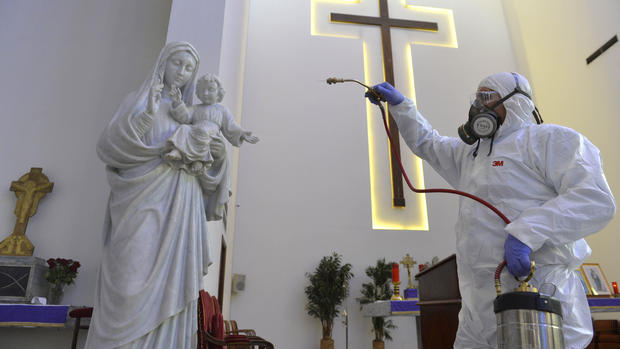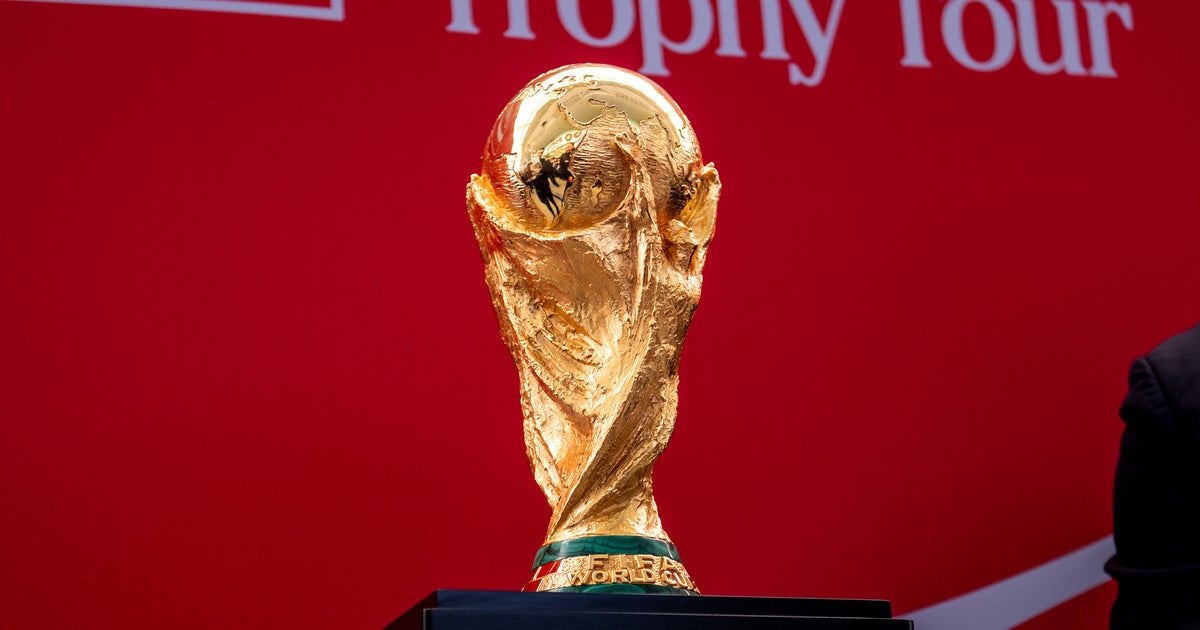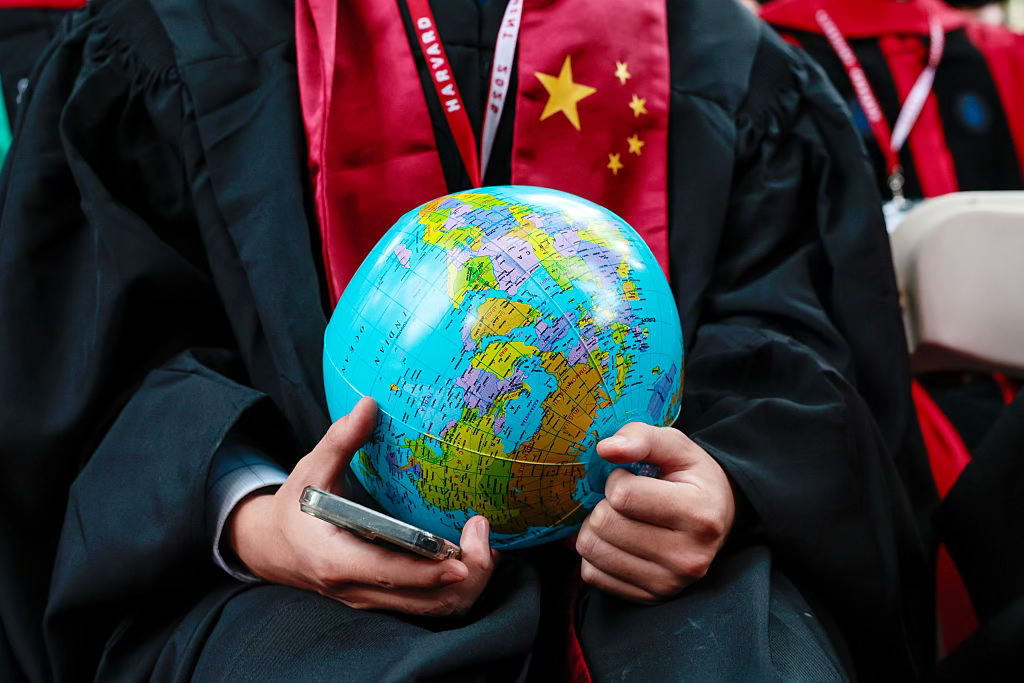Astonishing photos reveal how coronavirus has left world landmarks deserted
Heightened fears about the spread of the coronavirus have crippled tourism industries worldwide. The threat of the disease has left many global landmarks deserted and airlines and hotels have seen a drastic increase in cancellations. Photos of normally crowded attractions reveal the impact of the epidemic as visitors stay away.
In these satellite photos released by technology firm Maxar Technologies, Mecca's Grand Mosque is shown as a destination that was once bustling with pilgrims. Since the outbreak, far fewer worshippers have descended on the holy city. The Associated Press reports Saudi Arabia has now barred citizens from making the pilgrimage due to concerns about the virus.
An aerial view of the Hazrat Masumeh Shrine in Iran tells a similar story. Courtyards around the shrine, which is located in one of the most sacred cities in Iran, have been emptied amid growing fears. According to data compiled by Johns Hopkins, Iran has had more than 4,700 cases of the disease, making it one of the hardest-hit countries in the world.
Worldwide, Johns Hopkins reports there have been more than 101,000 confirmed cases of COVID-19, the disease caused by the novel coronavirus. More than 55,800 people have recovered. At least 3,460 people have died.
Mainland China, where the outbreak began, has the most confirmed cases of coronavirus with over 80,500 as of Friday. Beijing's Tiananmen Square stands empty as airlines around the world cancelled flights to China.
Italy has been the hardest-hit country in Europe so far, with more than 4,600 confirmed cases. Schools, universities and day care facilities closed nationwide earlier this week and some of the world's most popular tourist destinations, including the Colosseum in Rome, Piazza Duomo in Milan, and St. Peter's Square in Vatican City, were uncharacteristically empty.
The famous Louvre Museum in France had approximately 9.6 million visitors last year from other countries, but for several days earlier this week it was closed, as the French government banned any indoor gatherings larger than 5,000 to prevent the spread of the disease. The Louvre has since reopened but is not accepting cash to cut down on germs.








